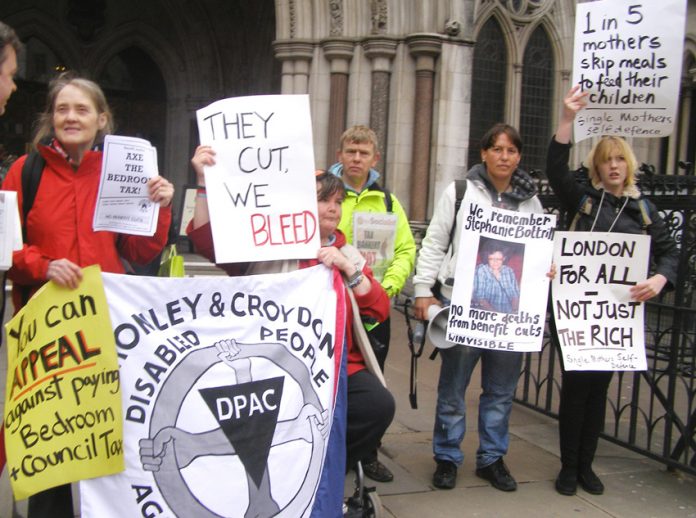
MORE than 5,000 people a year are being made ‘homeless’ as a household debt crisis deepens, the Centre for Social Justice (CSJ) warned yesterday.
More than 26,000 UK households have been accepted by councils as homeless in the last five years because of rent and mortgage arrears, with 5,036 becoming homeless last year.
There are fears that this number will increase in the coming years should interest rates rise.
Increasing homelessness is also putting more strain on local authorities, many of whom are already finding it difficult to balance budgets.
The latest CSJ report, led by former Labour Work and Pensions Minister Chris Pond, highlights:
• Increasing numbers of people turning to high-cost lenders to pay for essentials;
• Personal debt problems pre-date economic crash and have been building for decades;
• Serious debt is fuelling a host of social problems, including mental illness and family breakdown.
The CSJ report says that hundreds of people are made homeless every month in the UK because they are unable to meet mortgage and rent payments.
The study finds that despite signs of national economic recovery, personal debt in the UK remains close to its all-time high at £1.4 trillion.
There is now an average household debt of £54,000 – nearly twice the level of a decade ago.
The report, Maxed Out, says poor people are bearing the brunt of a storm that has seen unsecured consumer debt almost triple in the last 20 years, reaching nearly £160 billion today.
Worryingly, indebted households in the poorest ten per cent of the country have average debts more than four times their annual income.
Average debt repayments within this group amount to nearly half their gross monthly income, the report stresses.
Christian Guy, Director of the CSJ, said: ‘Years of increased borrowing, rising living costs and struggling to save has forced many families into a debt trap that is proving very difficult to escape.
‘Problem debt can have a corrosive impact on people and families. Our report shows how it can wreak havoc on mental health, relationships and wellbeing.
‘Across the UK people are up until the early hours worrying about their finances and bills.’
He added: ‘Some of the poorest people in Britain are cut off from mainstream banking and have no choice now but to turn to loan sharks and high-cost lenders.’
As mainstream banks reduced access to credit following the financial crash, the market for short-term high-cost credit (payday lenders, pawnbrokers, rent-to-buy and doorstop lenders) increased dramatically and is now worth £4.8 billion a year.
Payday lenders have increased business from £900m in 2008/09 to just over £2bn (or around eight million loans) in 2011/12.
Around half of payday loan customers reported taking out the money because it was the only form of credit they could get. The number of people going to loan sharks is also said to have increased – the most recent estimate puts it at 310,000 people.
The CSJ report also highlights that in light of the rising cost of domestic energy and other household bills, there are fears more households might be pushed into problem debt.
Essential bills have increased by 25 per cent since 2007 and evidence suggests that one-in-six payday loans are now used to pay for an outstanding household bill.